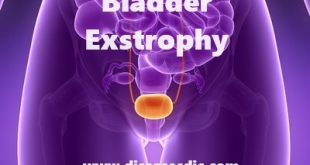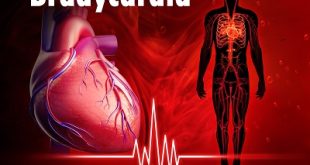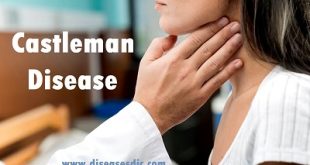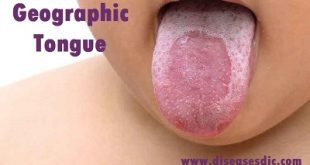Description
Burning Mouth Syndrome (BMS) is a painful, complex condition often described as a burning, scalding, or tingling feeling in the mouth that may occur every day for months or longer. Dry mouth or an altered taste in the mouth may accompany the pain.
BMS is most commonly found in adults over the age of 60. It is estimated to be about five times more frequent in women than in men.
Doctors and dentists don’t have a specific test for BMS, which makes it hard to diagnose. No specific treatment works for everyone. However, a doctor can prescribe medications to help you manage the pain, dry mouth, or other symptoms.
What are the different types of burning mouth syndrome?
Based on the symptoms, burning mouth syndrome is of three types-
- Type 1 BMS: The person does not experience any dryness on waking up in the morning. But the symptoms start growing throughout the day and become maximum in the evening. The symptoms manifested at night vary if the patients have nutritional deficiencies or metabolic diseases like Diabetes.
- Type 2 BMS: The symptoms are more or less continuous and are present throughout the day. The severity of the symptoms is the highest at night. This results in a severe lack of sleep at night. Type 2 BMS is often associated with chronic anxiety due to a markedly altered sleep pattern. Studies have shown a connection between Type 2 BMS and the antidepressant drugs that cause xerostomia.
- Type 3 BMS: Here the symptoms occur intermittently throughout the day with periods of no symptoms in between. Type 3 BMS occurs due to anxiety or allergic reactions, particularly the ones caused by food allergens.
Pathophysiology of Burning Mouth Syndrome
The pathophysiology of burning mouth syndrome (BMS) is not understood.
It was originally considered a psychogenic illness; however, a neuropathic mechanism for burning mouth syndrome (BMS) is currently favored. This is based on objectively measured abnormalities of physiologic responses of the trigeminal nerve in burning mouth syndrome (BMS) patients. There is also evidence to suggest histopathologic changes in nociceptive fibers in BMS patients. The differentiation between a peripheral versus a central etiology has not been determined.
There is evidence to suggest that anxiety is associated with BMS, but whether it is a cause or the result of intractable symptoms has not been elucidated. However, few researches have indicated that both anxiety and depression may significantly contribute to the development of burning mouth syndrome.
Burning mouth syndrome (BMS) has been associated with oral parafunctional habits such as bruxism, clenching, and tongue thrusting. The bruxism and clenching are increased with anxiety, which is also associated with burning mouth syndrome (BMS). Although psychogenesis is no longer regarded as the primary cause, it may exacerbate symptoms. Whether burning mouth syndrome (BMS) has a neurologic abnormality in common with parafunctional behaviors has yet to be adequately investigated.
Burning mouth syndrome (BMS) is also associated with a higher incidence of gastrointestinal and urogenital disease, the significance of which is still unclear. It has not clearly been shown to be associated with a higher rate of somatosensory disorders.
Causes of Burning Mouth Syndrome
Women, especially those who’ve gone through menopause, have it more often than men. The changes in hormones may trigger some cases of BMS. Other possibilities include:
- Allergic reaction to materials used in dentures
- Anxiety or depression
- Damage to the nerves that control taste or pain
- Dentures that fit badly
- Problem with your immune system
- Reaction to certain toothpastes or mouthwashes
- Stress
Some health problems also might play a role in BMS. They include:
- Acid reflux (acid from your stomach comes back up into your mouth)
- Diabetes
- Dry mouth (caused by such conditions as Sjogren’s syndrome, certain medications, or radiation therapy)
- Lack of iron, vitamin B12, or folic acid
- Thrush (a fungal infection in your mouth)
- Thyroid problems
Risk factors of Burning Mouth Syndrome
Burning mouth syndrome is uncommon. However, your risk may be greater if:
- You’re a woman
- You’re perimenopausal or postmenopausal
- You’re over the age of 50
Burning mouth syndrome usually begins spontaneously, with no known triggering factor. However, certain factors may increase your risk of developing burning mouth syndrome, including:
- Recent illness
- Some chronic medical disorders such as fibromyalgia, Parkinson’s disease, autoimmune disorders and neuropathy
- Previous dental procedures
- Allergic reactions to food
- Medications
- Traumatic life events
- Stress
- Anxiety
- Depression
Symptoms
Symptoms of burning mouth syndrome may include:
- A burning or scalding sensation that most commonly affects your tongue, but may also affect your lips, gums, palate, throat or whole mouth
- A sensation of dry mouth with increased thirst
- Taste changes in your mouth, such as a bitter or metallic taste
- Loss of taste
- Tingling, stinging or numbness in your mouth
The discomfort from burning mouth syndrome typically has several different patterns. It may:
- Occur every day, with little discomfort when you wake, but become worse as the day progresses
- Start as soon as you wake up and last all day
- Come and go
Whatever pattern of mouth discomfort you have, burning mouth syndrome may last for months to years. In rare cases, symptoms may suddenly go away on their own or become less frequent. Some sensations may be temporarily relieved during eating or drinking.
Burning mouth syndrome usually doesn’t cause any noticeable physical changes to your tongue or mouth.
Complications of Burning Mouth Syndrome
Complications that burning mouth syndrome may cause or be associated with are mainly related to discomfort. They include, for example:
- Difficulty falling asleep
- Difficulty eating
- Depression
- Anxiety
Diagnosis and Test
There’s no one test that can determine if you have burning mouth syndrome. Instead, your doctor will try to rule out other problems before diagnosing burning mouth syndrome.
Your doctor or dentist likely will:
- Review your medical history and medications
- Examine your mouth
- Ask you to describe your symptoms, oral habits and oral care routine
In addition, your doctor will likely perform a general medical exam, looking for signs of other conditions. You may have some of the following tests:
- Blood tests. Blood tests can check your complete blood count, glucose level, thyroid function, nutritional factors and immune functioning, all of which may provide clues about the source of your mouth discomfort.
- Oral cultures or biopsies. Taking and analyzing samples from your mouth can determine whether you have a fungal, bacterial or viral infection.
- Allergy tests. Your doctor may suggest allergy testing to see if you may be allergic to certain foods, additives or even substances in dental work.
- Salivary measurements. With burning mouth syndrome, your mouth may feel dry. Salivary tests can confirm whether you have a reduced salivary flow.
- Gastric reflux tests. These tests can determine if you have GERD.
- Your doctor may recommend an MRI scan, a CT scan or other imaging tests to check for other health problems.
- Medication adjustment. If you take a medication that may contribute to mouth discomfort, your doctor may change the dose, switch to a different medication, or temporarily stop the medication, if possible, to see if your discomfort goes away. Don’t try this on your own, because it can be dangerous to stop some medications.
- Psychological questionnaires. You may be asked to fill out questionnaires that can help determine if you have symptoms of depression, anxiety or other mental health conditions.
Treatments for burning mouth syndrome
Treatment for secondary BMS
If your doctor finds that there’s a specific medical condition causing your BMS, stopping the burning sensation involves treating the underlying health problem. Some of these include:
- Acid reflux: Medication to neutralize stomach acid may help relieve symptoms of BMS.
- Dry mouth: If you have dry mouth, ask your doctor about products to increase saliva production, or take vitamin shots or supplements for a vitamin deficiency.
- Mouth infection: You doctor can also prescribe medication to treat an underlying oral infection, or a pain reliever.
Treatment for primary BMS
If you don’t have an underlying health problem, BMS usually resolves on its own. In the meantime, take these steps to ease symptoms:
- Suck on small ice chips throughout the day to lessen the burning sensation.
- Drink or sip cold liquids throughout the day to relieve mouth pain. Some people experience relief after drinking.
- Avoid acidic foods, like citrus fruits.
- Avoid food and drinks that worsen or trigger the burning sensation. Limit your consumption of hot beverages and spicy foods. Monitor your symptoms after smoking or consuming alcohol. Both actions can worsen BMS. Keep in mind that medications containing alcohol can also worsen symptoms.
- Change your toothpaste. If burning worsens after brushing your teeth, switch to a toothpaste specifically for people with mouth sensitivities, or use baking soda as a toothpaste or mouth rinse. Dissolve a spoonful of baking soda in lukewarm water and rinse your mouth to neutralize acid and cool the burning sensation.
- Stay active and practice relaxation techniques to reduce stress, like yoga, exercise, and meditation.
Medications
The following medications may be prescribed to you by your physician.
Antidepressants: Tricyclic antidepressants (TCAs, such as amitriptyline or nortriptyline), an older class of antidepressants, are commonly found helpful for a variety of neuropathic pain conditions. More commonly used newer antidepressants (SSRIs, such as sertraline), while very helpful in cases of co-morbid anxiety and depression, are not as effective for this type of pain. SNRIs (such as duloxetine) can also be helpful for neuropathic pain.
Anticonvulsants: Medications initially developed to prevent seizures also reduce the activity of nerve fibers, which can help reduce neuropathic pain. Gabapentin is an example of an anticonvulsant commonly used for burning mouth syndrome pain.
Anxiolytics: Medications such as benzodiazepines (such as clonazepam, chlordiazepoxide) calm the nerve fibers and may also affect the taste pathway from the tongue to the brain. However, they also pose several concerns, including a high potential for addiction, uncomfortable and potentially dangerous withdrawal when discontinued, and fall risk in elderly people.
Preventing Burning Mouth Syndrome
There is no known way to prevent symptoms of burning mouth syndrome as they can occur out of the blue. However, women have several options available in order to lessen the intensity of another episode or minimize the frequency of them.
Balancing hormones is a crucial step needed to alleviate tongue problems and burning mouth syndrome. Essentials to hormonal equilibrium include following a healthy diet, exercising, and partaking in good habits. Moreover, women are encouraged to support these lifestyle changes by supplementing with essential vitamins proven to ease symptoms of BMS if needed.
Lifestyle Changes for Prevention
Nutrition. When it comes to regulating hormones for overall health, diet is essential. By eating a balanced diet rich in foods known to promote hormonal health – such as phytoestrogens – as well as foods known to sustain nervous system health and help normalize stress, it is possible to reduce the symptoms of burning mouth syndrome.
Regular exercise. Exercise is crucial for women who are looking to manage symptoms. It reduces stress, maintains alertness, improves cognitive function, and more. When a woman exercises, endorphins are released, which act with receptors in the brain to reduce pain perception. Ideally, women should aim to work out at least 30 minutes a day, 5 days a week. Workouts can include running, swimming, biking, and aerobics. To specifically relieve stress-triggered BMS, practice yoga and deep breathing exercises.
Healthy habits. Studies prove that women who smoke cigarettes and consume alcohol regularly are more likely to worsen symptoms of hormonal imbalance, such as burning mouth syndrome. It is important to avoid or minimize the consumption and use of these substances. Women should also aim to maintain a healthy weight to help balance hormone levels, keep hydrated with water, reduce stress, and sleep at least seven hours a night.
Supplements. Studies indicate that fish oil, B-complex vitamins, zinc, iron, and folate are some of the best supplements needed to help maintain nervous system functions to help cure burning mouth syndrome. This is especially true for those who suffer from burning sensations on the tongue due to vitamin deficiencies. Moreover, the antioxidant alpha-lipoic acid (ALA) is also shown in some studies to be neuroprotective, relieving symptoms of burning mouth syndrome.
 Diseases Treatments Dictionary This is complete solution to read all diseases treatments Which covers Prevention, Causes, Symptoms, Medical Terms, Drugs, Prescription, Natural Remedies with cures and Treatments. Most of the common diseases were listed in names, split with categories.
Diseases Treatments Dictionary This is complete solution to read all diseases treatments Which covers Prevention, Causes, Symptoms, Medical Terms, Drugs, Prescription, Natural Remedies with cures and Treatments. Most of the common diseases were listed in names, split with categories.








can it be occur due to smoking?
Smoking tobacco can irritate the delicate skin inside the mouth. It is best to avoid all products that contain tobacco to reduce or prevent BMS symptoms. Several conditions contribute to BMS. People should discuss home remedies and medical treatments for these conditions with a doctor.
why does mouth burn occur during eating time
A tongue burn is a common ailment. Typically, the condition occurs after eating or drinking something that’s too hot. Standard first-aid treatment for burns can also work for a tongue burn. A mild burn on your tongue can be a nuisance, but it will eventually heal. If you have a serious burn, seek immediate medical attention.
Burning mouth syndrome (BMS) is a condition that can make you feel the sensation of a burn on your tongue for no apparent reason. The symptoms are ongoing and can last for years.